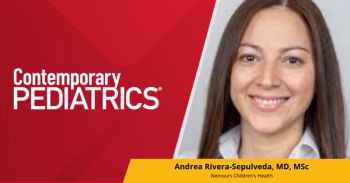
Study evaluates breastfeeding's effect against sudden infant death syndrome
A meta-analysis of 18 case-controlled studies on the relationship between breastfeeding and risk of sudden infant death syndrome revealed that breastfeeding of any duration is protective, especially if the breastfeeding is exclusive.
A meta-analysis of 18 case-controlled studies on the relationship between breastfeeding and risk of sudden infant death syndrome (SIDS) revealed that breastfeeding of any duration is protective, especially if the breastfeeding is exclusive. The studies in the meta-analysis were from many countries and represented heterogeneous populations.
Univariable and multivariable odds ratios (ORs) were extracted from each study for associations between different breastfeeding conditions and SIDS: any amount (partial or exclusive) or duration of breastfeeding; any amount at the age of 2 months or older; and exclusive breastfeeding of any duration. Summary odds ratios (SORs) also were calculated.
For infants who received any amount of breast milk for any duration, the univariable SOR and the multivariable SOR were 0.40 and 0.55, respectively, which suggest that breastfeeding itself is protective and not merely a marker of other potentially protective factors. For any breastfeeding at 2 months of age or older, the univariable SOR was 0.38. The univariable SOR for exclusive breastfeeding of any duration was 0.27 (Hauck FR, et al. Pediatrics. 2011;128[1]:103-110).
The 2005 American Academy of Pediatrics statement on breastfeeding states that "some studies suggest decreased rates of SIDS" in children who are breastfed and calls for additional research to support these findings (Pediatrics. 2005:115[2]:496-506). When considered together, these 18 studies provide that research and generate a solid, unwavering picture of SIDS risk reduction through breastfeeding. They offer strong support for the authors' conclusion that "all health professionals should speak in 1 voice about the importance of breastfeeding, which now adds SIDS risk reduction to its long list of maternal and infant health benefits."
-Michael Burke, MD
Newsletter
Access practical, evidence-based guidance to support better care for our youngest patients. Join our email list for the latest clinical updates.








